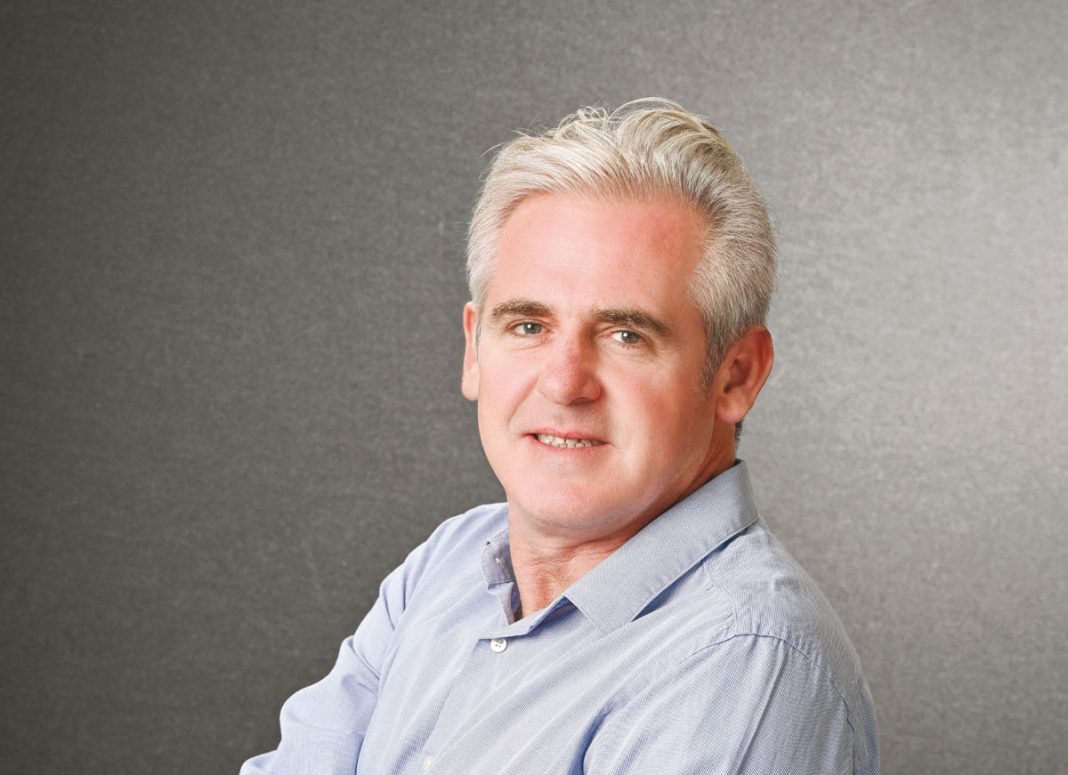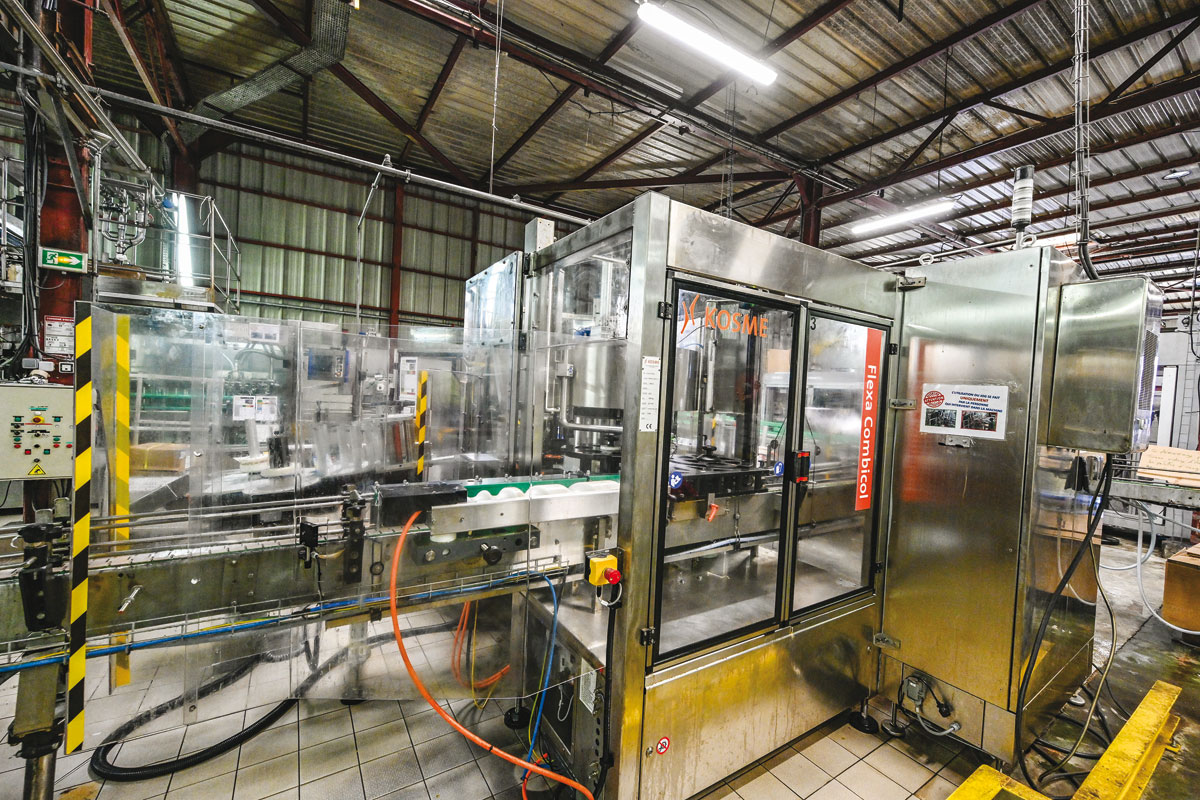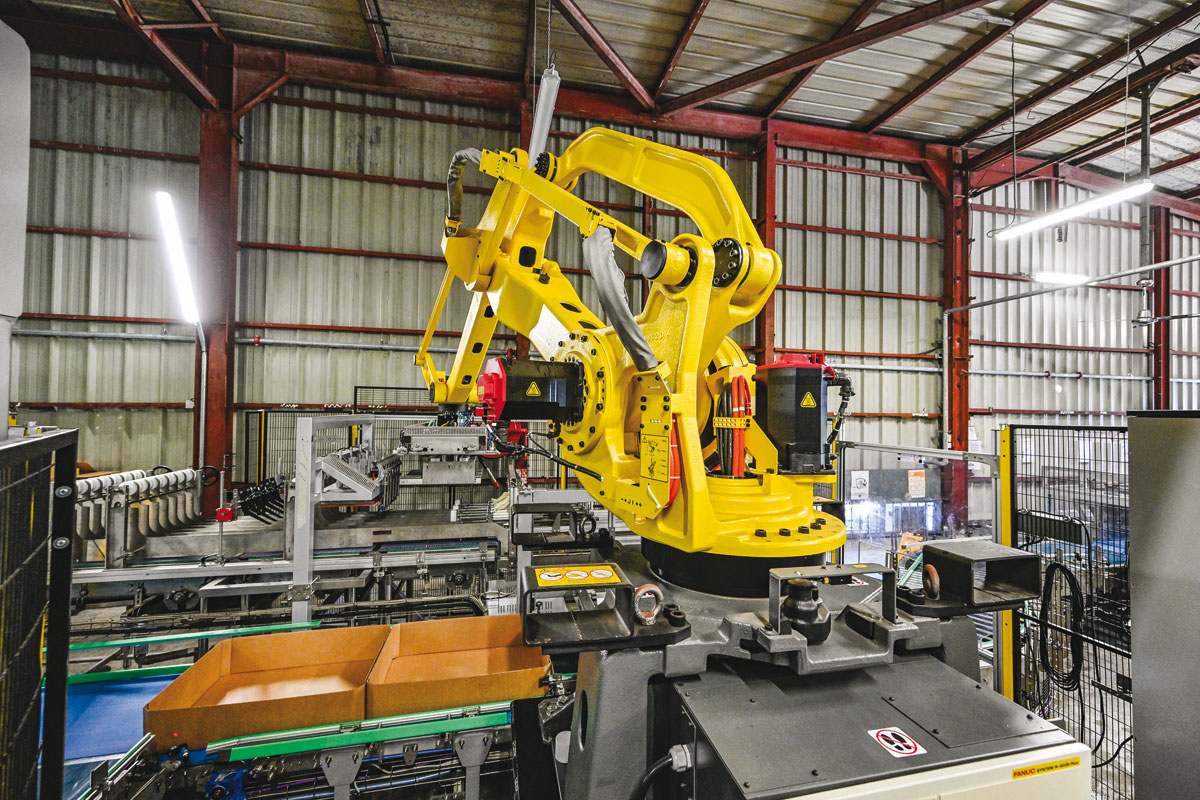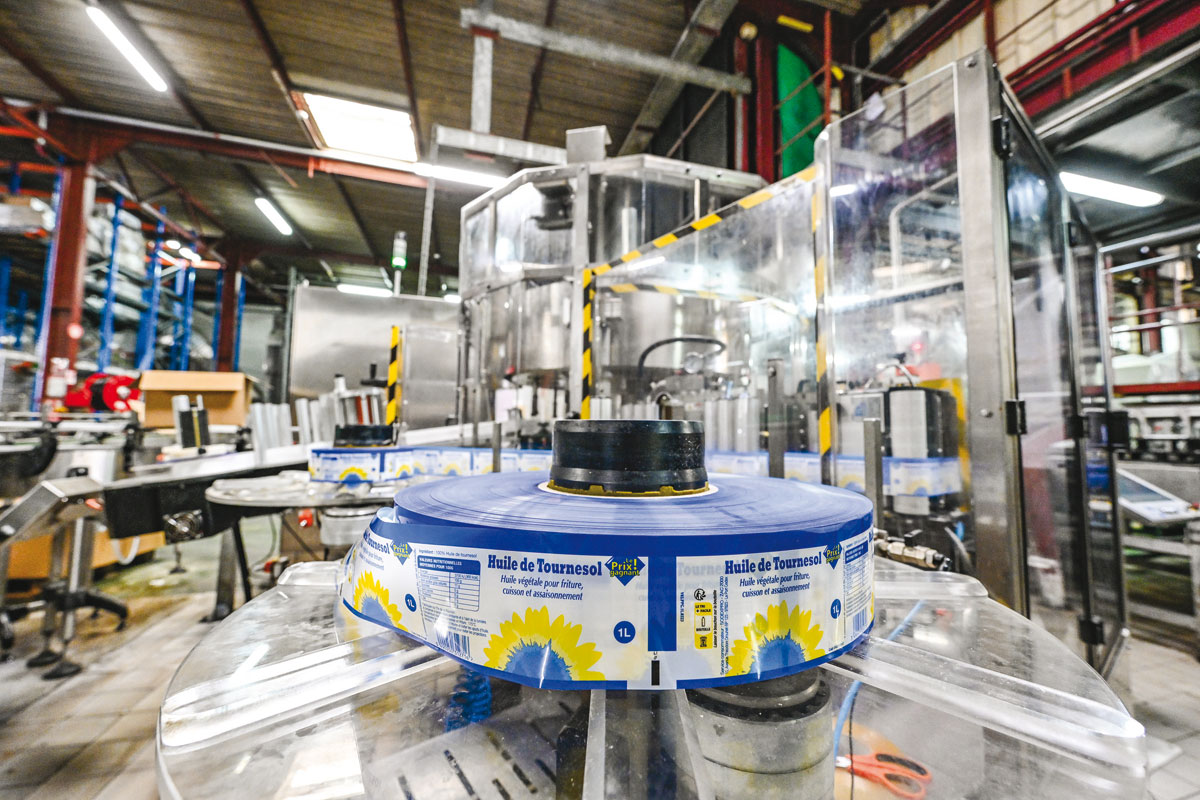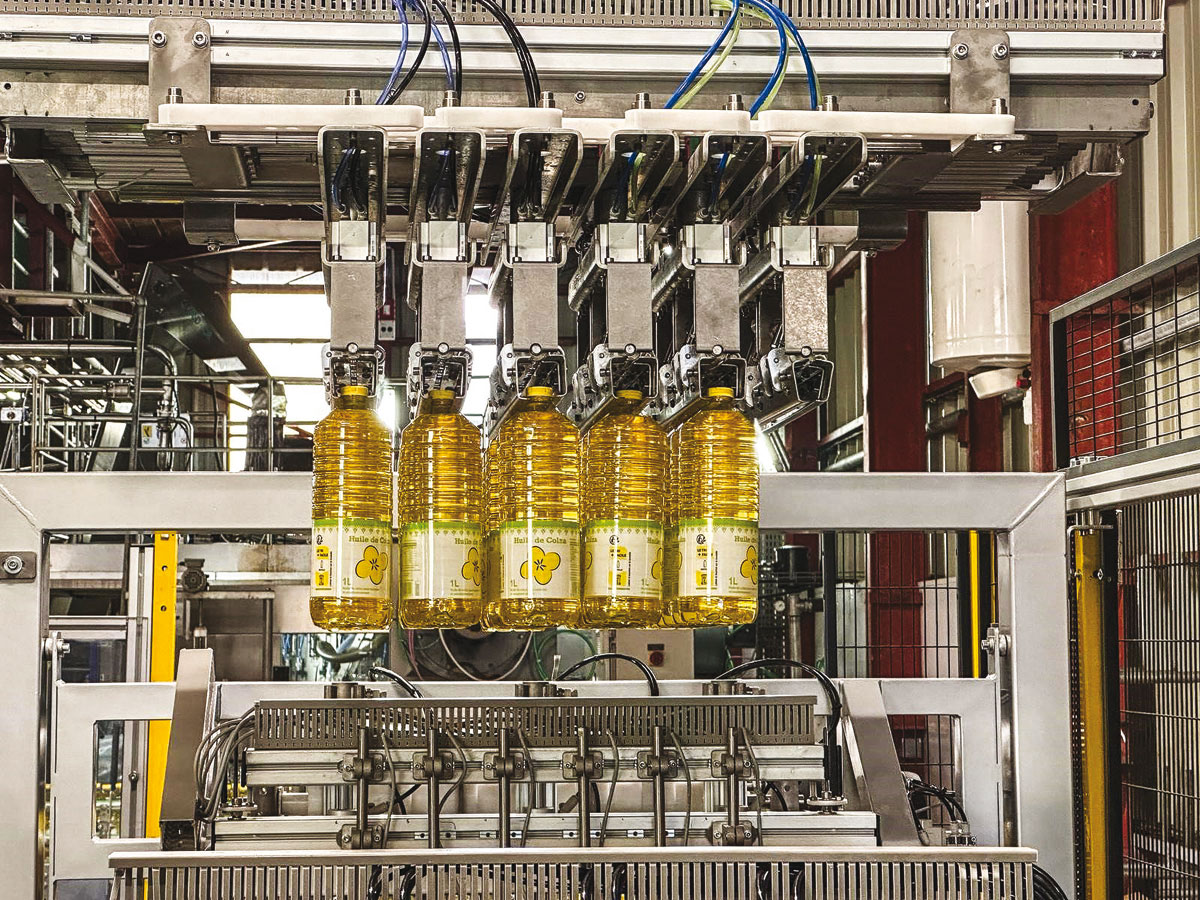Covid-19 crisis, war in Ukraine, tension in the Red Sea : faced with the upheaval of its crude oil supply routes, the Bourbon Oil Production Company (SPHB), who will soon celebrate his 40th birthday, made it the source of reflection on his profession, with strategies, its place in the local economy and Reunion society. During these different crises, the shelves of the Réunion supermarket experienced few stock shortages and the SPHB even diversified its offering so that families continue to have access to quality oil despite inflation. This loyalty of service is to the credit of the general director of the SPHB, Jean-Marie Ollivier, and his team, with the support of Lesieur, of which SPHB has been a subsidiary since 2015. From the reflection generated by this complicated period was born an “update” of the SPHB strategic plan. While maintaining the great course of modernization, the SPHB has clarified the purposes and means. In the interview he gave us, Jean-Marie Ollivier resumes, point by point, the different aspects of this clarification, of the company's refocusing on oil production with its local roots, through the positioning of its brands and its multiple CSR initiatives. So many aspects of a renewed strategy which give new impetus to the company.
The bottling line has been completely renewed : to the left, the automatic labeler; to the right, the packaging robot.
Meeting Leader : How is the Bourbon Oil Production Company doing at the end of the first half of 2024? ?
Jean-Marie Ollivier : In 2023, the SPHB has updated its strategic plan. We had been tossed around quite a bit between 2020 and 2022, between the Covid-19 health crisis, then the war in Ukraine. This update of the strategic plan allowed us to set a new course. And this direction is very clear : is to focus on our oil production activities. This vision was shared with all employees. Today it gives meaning and new life to our activity by clarifying what we want to do..
What is your view on the economic outlook for the year? ?
The start of 2024 was disrupted by difficulties in the Red Sea, which affected the logistics of all stakeholders in Reunion. Several hundred tons of crude oils that we were expecting did not arrive on time. We had a strategic stock of finished and raw products which allowed us to continue working and deliver to customers normally.. There was no out of stock. Beyond, do we have a market that is growing ? It's hard to say. We cannot deny that there is inflation, tension on the markets with all the conflicts, and a certain gloom. You can, Nevertheless, that Reunion has a capacity for resilience, with a steadily increasing population, an active economic fabric, very dynamic tourism. SO, even if there are substantive issues that raise questions, I am rather optimistic for the future.
What is the situation in the edible oil raw materials market? ?
The oil market has always been a global market : it has been even more so for two or three. The granary of wheat and sunflowers was in Ukraine and Russia : 80% of crude oil production took place there, with regular flows. This relatively stable market, the war in Ukraine destabilized it. Access to the seed becomes difficult, very complicated on-site processing, prices have increased significantly. Product delivery routes have changed. The other new element influencing the oils market, it is the development of biofuels. Their development puts pressure on the market, which therefore experiences very high volatility. Between the different types of oils, biofuels, a supply and demand in constant movement at the global level, understanding the vagaries of this market is not a long, quiet river.
What about the Reunion market? ?
In the meeting, the market is mainly oriented towards sunflower and rapeseed. The year 2022 recorded a drop in volumes linked to the sharp rise in prices and supply problems. We can say that the crisis, with its very high prices, is behind us. Sunflower and rapeseed have returned to price levels quite close to what they were before the war in Ukraine. The recovery in sales volumes was around 10% in 2023. We have changed our sources of supply. We now source from mainland France, where sectors are developing to produce rapeseed and sunflower. For example, we buy 100% French rapeseed.. This is an extremely positive element. We are less affected by market fluctuations. At the start of 2024, the market remains stable. The element that intensifies, this is the importance taken by the windfall effect of in-store promotions. With an average basket which has nevertheless increased significantly and inflation which persists, the consumer is sensitive to this windfall effect. This is a marked phenomenon in Reunion Island and we observe it very clearly on the oils.
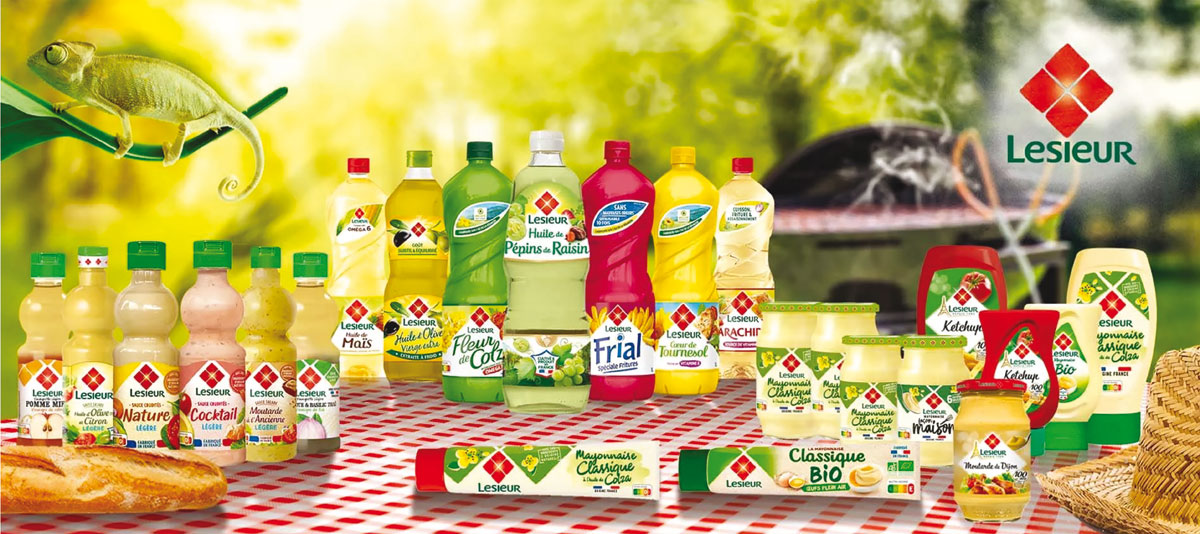
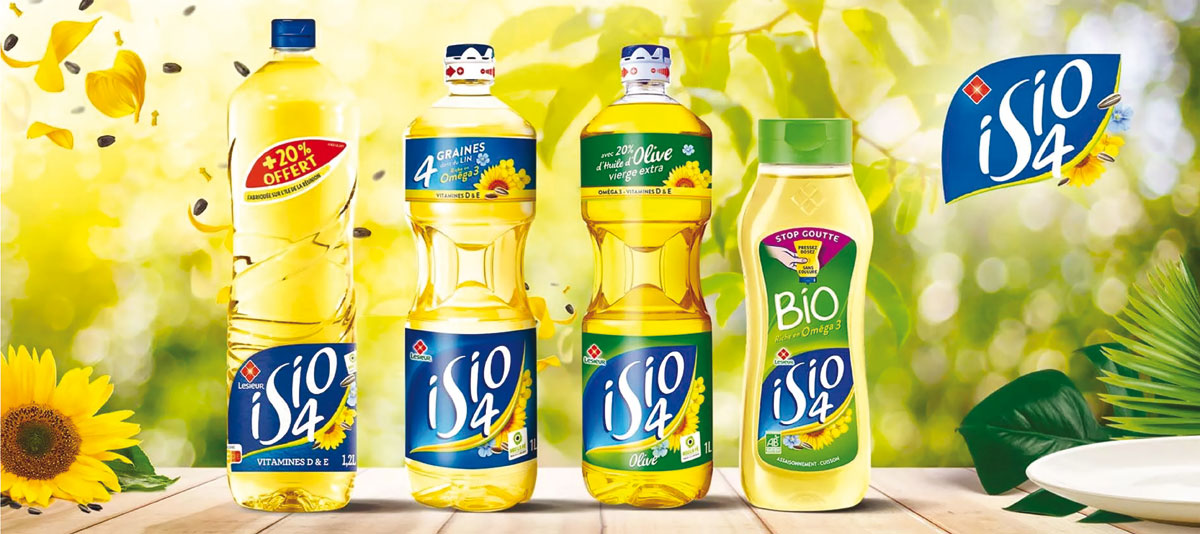
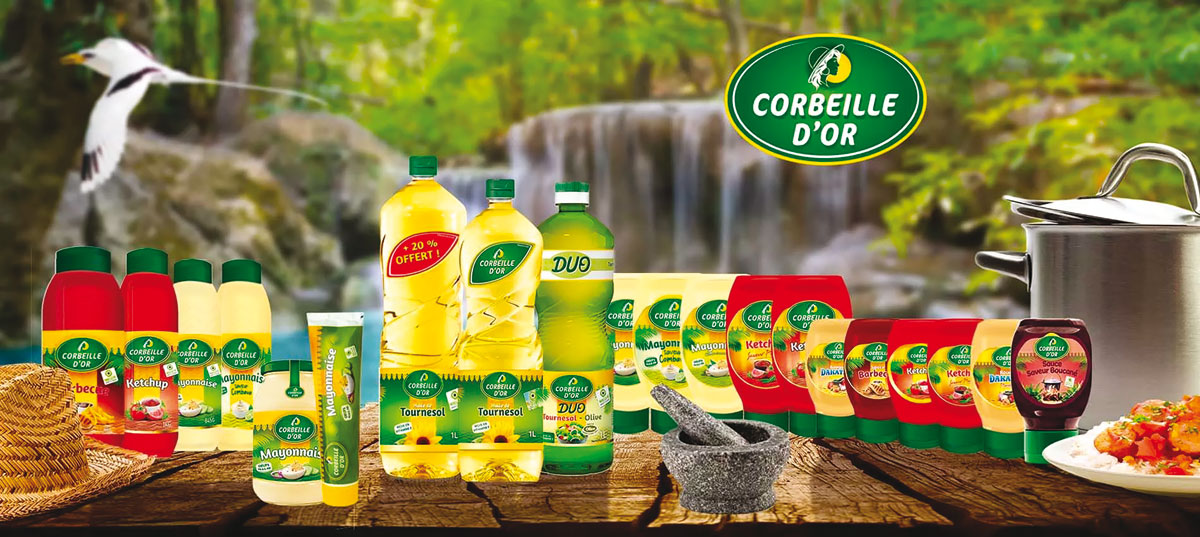
A few years ago, the consumption of cooking oil of Reunion residents was estimated to be double or triple that of Metropolitan residents ! Is this still the case or are local eating habits changing? ?
They evolve. There are still large oil consumers in Reunion Island. But we are seeing changes in behavior. When we make the ratio between the quantity of oil sold in France and in Reunion, we see that the gap is narrowing. Consumption in Reunion Island is estimated between 15 and 16 liters per inhabitant per year.. In a city, we are around 12 liters. The growing number of inhabitants means that the market as a whole remains on the rise, but a transformation occurs within. The consumer educates himself. We also carry out information campaigns for this purpose.. Consume less, but better : the message is gaining ground. A premium product like ISIO 4, extremely nutritionally interesting blend of four oils, resonates with Reunion consumers. Olive oil, with its strong health connotation, also progresses : today it represents 5 to 6% of oils consumed in Reunion Island. Rapeseed also has recognized nutritional qualities. All these segments are growing.
Your three flagship brands, Lesieur, ISIO 4, Basket of Gold, do they still cover the entire local market? ?
There is basically no change in positioning, but a clearer approach to products. ISIO 4 is our spearhead, notre premium. This product is completely unique nutritionally by providing vitamins D and E, which is not found in all foods. Its ratio between omega 3 and omega 6 is very good. It's not a nutraceutical, it remains a food product, a product of pleasure itself, but it is of real interest for health and the people of Reunion have understood this well ! For pregnant women. For active people by contributing to the prevention of cardiovascular risk. For seniors who need omega fatty acids. Communication on ISIO 4 in mainland France highlights these benefits. We are going to offer it in Reunion. ISIO 4 oil is manufactured locally.
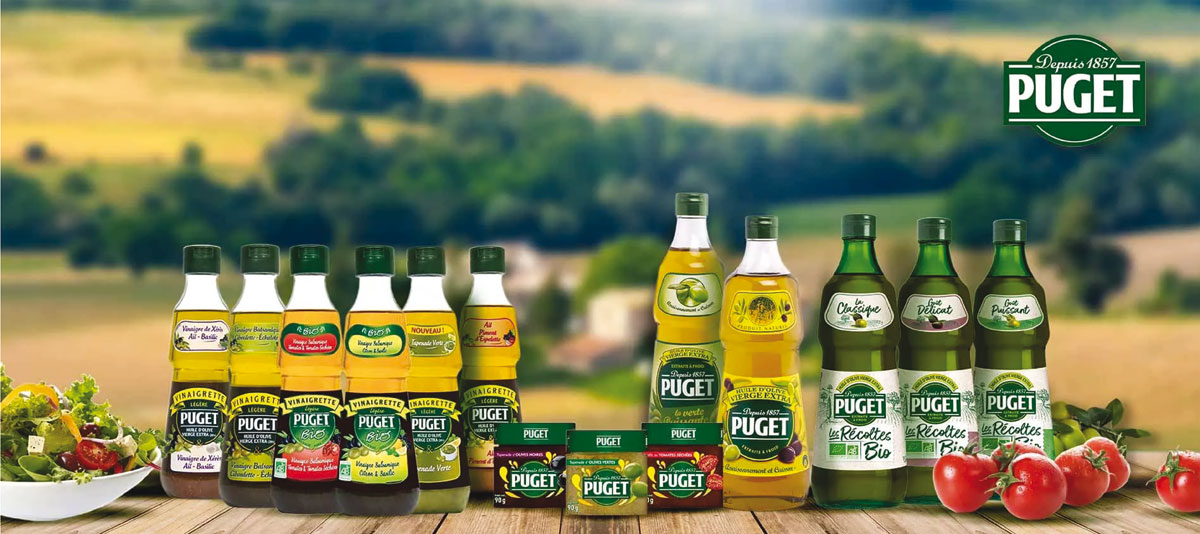
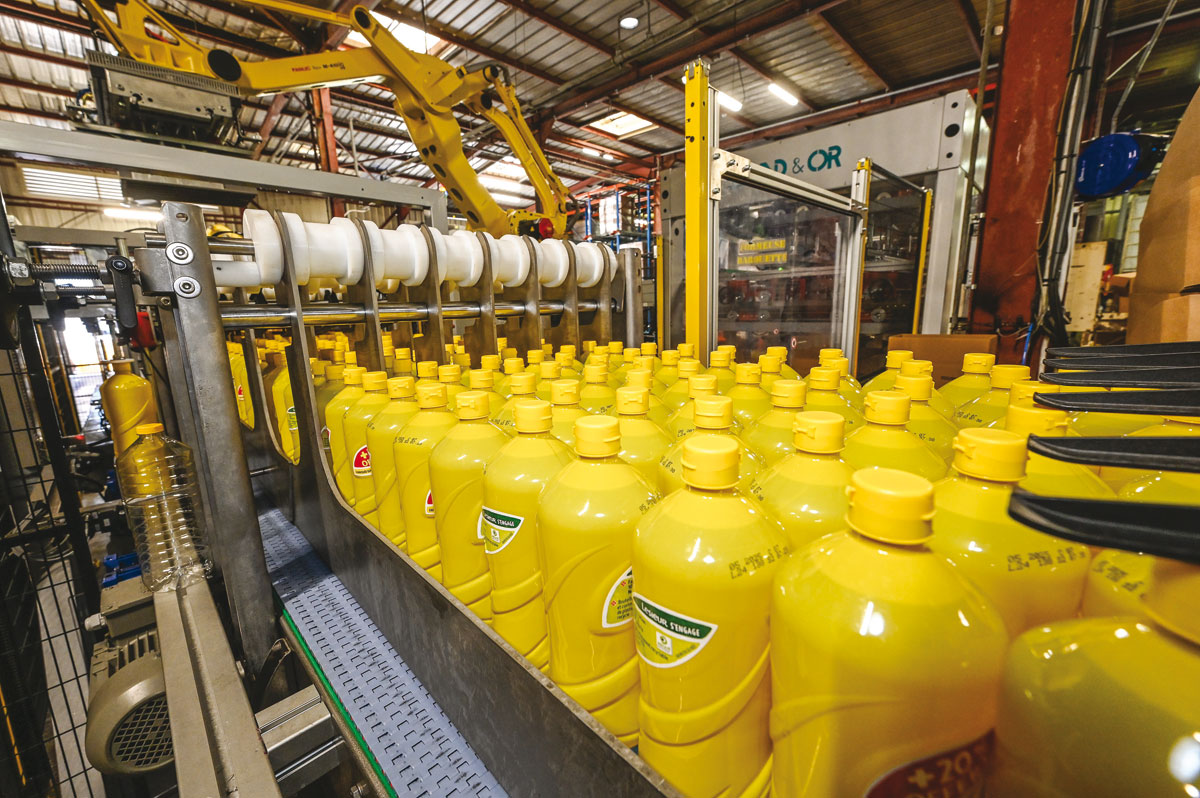
How are your other brands positioned? ?
Lesieur is the “queen of oils” in the opinion of the Reunion Islanders themselves. Lesieur, it is the excellent value for money and the daily culinary ally of Reunionese families, made on our island. Basket of Gold, which is a local favorite brand, responds to the specificities of the Reunion market. This is one of the lessons of a consumer study carried out in recent months. If Corbeille d’Or condiments in GMS formats have been stopped, the brand will focus on its primary know-how to progress on the oil ranges, like the 100% Rapeseed and the Corbeille d’Or Olive-Sunflower Duo, an innovation from SPHB. By adding 20% olive oil to the Duo mixture, we offer a product with a very good olive oil taste at an attractive price. This product is making headway. We are also developing our range for professionals, in 5 liter format, under the Corbeille d’Or Professionnel brand. These are specific oil blends for frying and seasoning, which save time for restaurateurs and generate less packaging waste. We are considering rolling out Corbeille d’Or to other segments. Finally, we have our brand of olive oil, Maurel. An extra virgin olive oil of Spanish origin, that we do not manufacture but that we bottle. Previously positioned more at the entry level, Maurel has become a qualitative brand offering excellent value for money on the olive oil market..
The price of olive oil has increased much more than that of other oils. What is the reason ?
It is undeniably the climate crises of the last two years which are the reason.. Indeed, the leading olive oil producing country is Spain. Spanish production collapsed by 50% due to two consecutive years of extremely severe drought. The lack of water was such that many olive trees, a tree yet accustomed to semi-arid climates, are dead. The olive oil market has been destabilized by this considerable drop in production. Olive oil market prices have increased by 112% since September 2022 ! Consumer appeal for olive oil does not diminish, but with such prices they are looking for substitutes. Our Corbeille d’Or Duo and Maurel oils, by their quality-price ratio, are clearly part of it. Nevertheless Puget, which is an Avril brand that we distribute, remains the number one olive oil producer in France and Reunion Island. With 25% market share, Puget is the first olive oil consumed locally. We also have Costa d’Oro in our brand portfolio., a high quality olive oil of Italian origin, and Soléou, brand of 100% organic olive oil.
Are there any new products planned for your brands this year? ?
As part of the BQP, we have just launched a new reference : Bourbon oil. We are reviving this old SPHB brand by positioning it as an entry-level product.. We are also launching Corbeille d’Or rapeseed oil. Corbeille d’Or Colza is a new choice offered to consumers. Under the Corbeille d’Or Professionnel brand, we are launching the new references in 5 liter format that I mentioned. To do this, we are ramping up our production line for 5 liter packaging. The demand is there. Among the new products from other Avril subsidiaries, Lesieur Ma Popote !, from the Lesieur brand, launched at the start of the year, is undoubtedly the most striking. Lesieur creates a new segment with Lesieur Ma Popote ! : the heart of a 100% plant-based meal. Fast, tasty and easy to use, these nine references can be heated in the microwave, and you can add whatever you want. We find among others in Lesieur Ma Popote ! red beans and lentils, which create an affinity with Reunionese cuisine. Feedback on Lesieur Ma Popote ! are very positive in Reunion, more than in mainland France. It's a great joy.
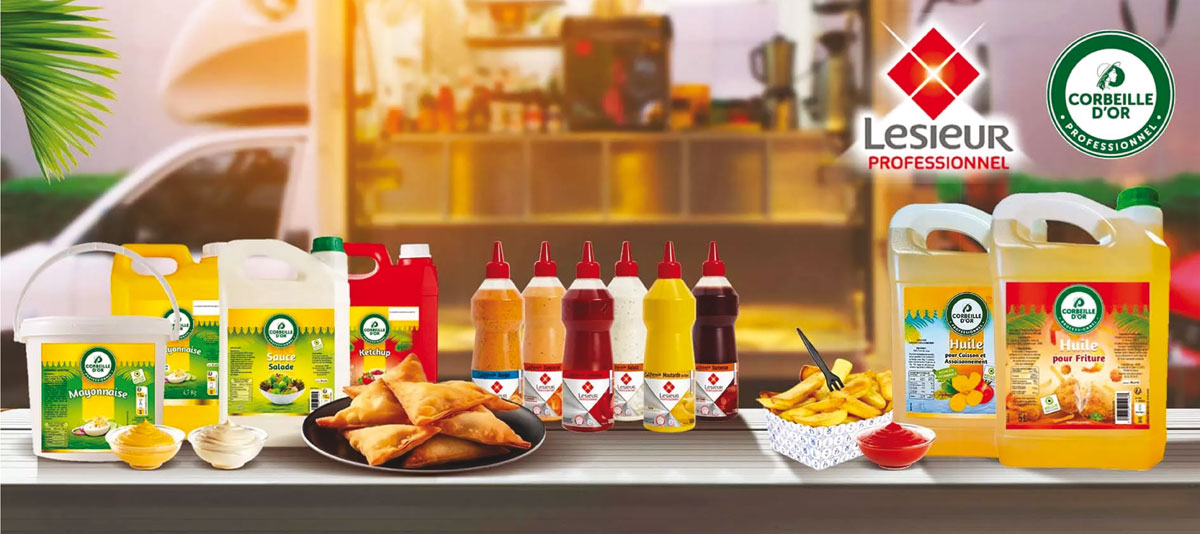
oil restorers, sauce and vinaigrette.
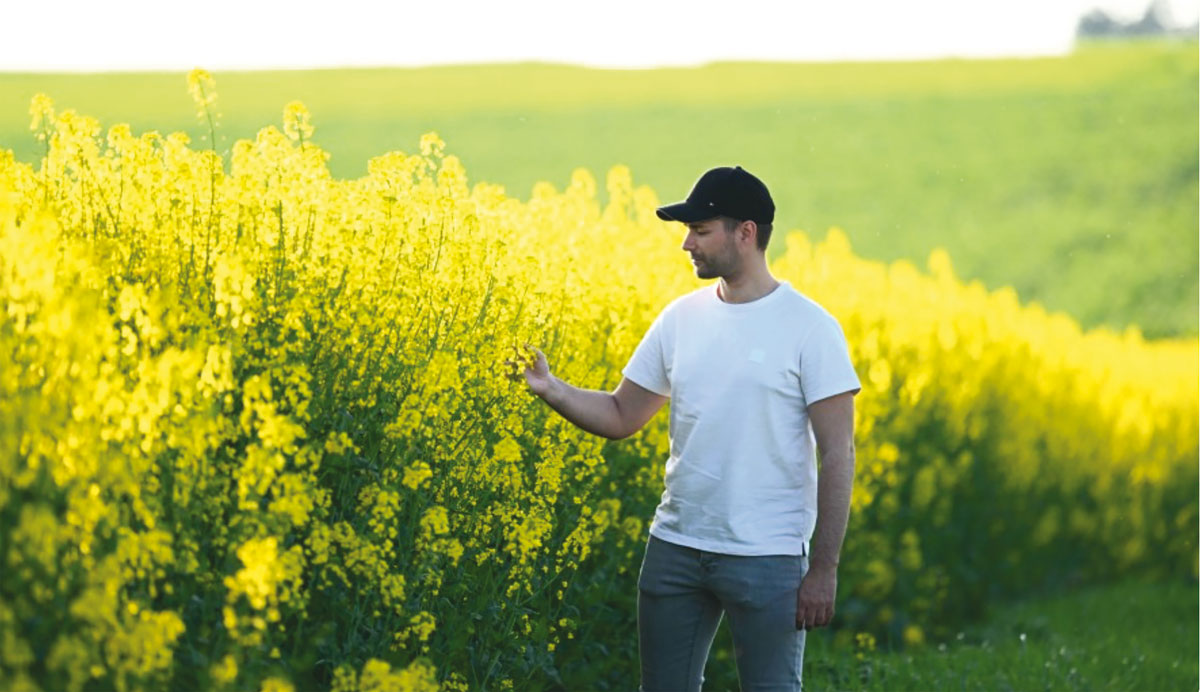
Isn’t it a small revolution for Lesieur to leave the world of oils? ?
Lesieur is one of the French's favorite brands. Stamp this new segment with this brand, popular and guarantee of quality, a legitimate couple. Lesieur Ma Popote ! responds to new consumption patterns, which are developing in Reunion as well.
With Professional Gold Basket, SPHB has the ambition to develop its food service activity ?
Developing this activity is in our strategy and our objectives. We adapt our offer to professionals, in local production with the Corbeille d’Or brand for oils and with Lesieur Professionnel for the sauces and vinaigrettes part. Lesieur Professionnel develops practical formats intended for catering, like the penguin mayonnaise dispenser, ketchup and other sauces, in a format of 4 to 5 kilos. Lesieur Professionnel has also designed a range of high firmness mayonnaises, which is a hit in the professional world in mainland France. It is a mayonnaise whose firmer texture avoids the disadvantages of mayonnaise that is too runny.. These products will be available in Reunion in the coming weeks.
With the proliferation of labels of all kinds, the definition of local production continues to be debated among some. Can you recall the industrial activity of the SPHB which justifies the Nou la fé label of your products? ?
Our business is the refining of edible oils. We are a heavy food industry. We receive the raw oils obtained by crushing the seeds, what is called crushing. We refine these raw oils. This process goes through several stages. Raw oils may contain pesticide residues, traces of earth, various impurities : we remove all these elements to make the oil consumable. This is the neutralization stage. Next comes deodorization : raw oils having very powerful odors, we make them neutral to smell. The third stage is that of discoloration : these thick oils have hues from caramel to chocolate, refining gives them the colors we know, from blond to golden white. Let’s take the example of ISIO 4, which is a blend of four oils : sunflower, rapeseed, Oleosol (high oleic sunflower oil), and linen. The first three are imported raw, refined and mixed in Reunion. Only linseed oil, used in too small a quantity in the mixture, is not locally refined. We bottle all these refined oils ourselves. We therefore transform a raw product into a finished product. It’s a real manufacturing activity.
You are a defender of Nou la Fé. Do you think that, without Nou the fairy, the SPHB would not be where it is today ?
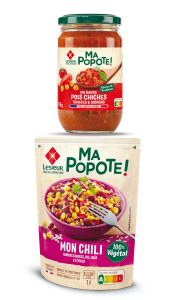
This is probably exaggerated. But there is a real message in Nou la fé. We can clearly see that the brand is known and recognized by consumers, even if its notoriety could still increase. She will soon celebrate her 15th birthday. Fin 2022, clarification work was undertaken to better define Nou la fé, especially compared to other local labels. Behind Nou the fairy, there are not only products, but specific processing know-how, with rare professions, even unique on the island. We are four refiners in Reunion ! All members are now visited by an external auditor who must confirm a stage of processing of raw materials and the CSR commitment of the companies. Nevertheless, my feeling is that there are too many brands, labels or signs of quality in the department. This dispersion is detrimental to the effectiveness of the message. When we discuss between bearers of Nou la fé, we often take the example of Brittany. I'm not saying that because I'm of Breton origin, but I sincerely think that the 'Produit en Bretagne' brand has found the right lever. With her, all of Brittany is highlighted. It is a consensus. Reunion needs such a global and shared vision.
You introduced the Nutri-Score for oils made in Reunion Island. Very few Reunionese companies have taken this step. Which SPHB products currently display this national label of nutritional values? ?
All our Lesieur oils have Nutri-Score C or D, being fatty substances. This label is above all information for our consumers, it’s a way to educate them about more reasonable and transparent consumption of edible oil. Three to four spoons of oil per day : this is the advice of nutritionists. The important thing is in the diversity of oils consumed and moderation. The very good news, is that the Nutri-Score is evolving and now gives pride of place to the nutrients contained in Lesieur oils, which will soon display, at the rate of label renewal, the grade of B.
As soon as you arrive at the SPHB management, you have undertaken to review the packaging of products in order to reduce the quantities of plastic, cardboard and other materials. A new, lighter ISIO 4 bottle has been released, and 25% recycled PET (rPET) has been integrated into all your bottles. Your goal was to reach 50%, or even 100% in the long term. Were you able to continue down this path? ?
Our purpose is to serve the earth, it is therefore quite natural that the SPHB is committed to reducing its packaging. Legislation sets a target of 30% for the rPET rate in plastic packaging in 2030. We are not far from it. Our plastic bottles, which are blown on site, contain 25% rPET. We have reduced the weight of the bottles and the weight of the caps. The SPHB produces ten million bottles per year and, with these measures, our plastic consumption has decreased by several dozen tons ! Tests are underway with our supplier to move to 50% rPET by the end of 2024 or in 2025. And we hope to go to 100% in 2026. We'll get there pretty quickly with the colored bottles. It will be a little more complicated with transparent packaging, because 100% rPET gives a slightly matte appearance to the bottle. Solutions are being studied. We also want to participate in the development of a local plastic packaging recycling sector., what seems logical on an island.
The SPHB is interested in the project of revaluation of edible oils in the form of lubricant of the start-up Biofuel
Biofuel is developing a project based on two ideas : collecting used cooking oils from restaurateurs, which are subject to regulations as soon as they use more than 60 liters of oil per year ; and the valorization of these residual oils to produce biofuel. We are indeed talking with this start-up to find synergies. I add that Avril is a major producer of biofuel. It was chosen as the biofuel supplier for the EDF Port-Est power plant., whose conversion to liquid biomass was completed last December. There is therefore a subject which interests us directly..
This CSR policy is also that of Avril ?
April has a reason to exist, that we share as a subsidiary and by conviction : “Serve the earth. " April, who recently celebrated his 40th birthday, was created and is still run by agricultural producers. The group is characterized by the absence of any dividend. All profits are reinvested. This is an absolutely unique model. Its purpose is broken down into six pillars. First pillar : act for agriculture that respects the planet. This is one of the reasons why SPHB is involved in the rapeseed sector in France.. Second pillar : act for local sectors. We are launching soon, in partnership with the Armeflhor technical institute, a study program for sunflower cultivation in Reunion. Third and fourth pillars : protection of resources and biodiversity. The development of rPET and our plan to reduce our water and electricity consumption go in this direction. A young engineer from Reunion was recruited to help us integrate green management into our operations and our investments. Fifth pillar : act for the climate. To reduce our carbon impact, we will optimize the transport of our raw materials in tanks. Tankers transporting rum to Europe will return with our raw oils instead of returning empty. We are also interested in local methanization projects to treat our oil waste.. Sixth pillar : act for inclusion and the collective. Isn’t this what Reunion Island experiences every day? ? People from all backgrounds work at SPHB. L’inclusion, it is also the training that allows the women and men of the company to progress.
Since its takeover by Lesieur in 2015, SPHB has continued to invest in its production tools. New investments are planned this year. What are your industrial modernization objectives now? ?
Investments have never stopped and have accelerated in recent years. For what ? The factory will be 40 years old. A certain amount of equipment needed to be refurbished or renewed. A major modernization work has been undertaken for two years on our bottling line. We started at the head of the line, bottle production. By integrating rPET, we replaced our label maker. In 2023 and early 2024, we completely changed the end of the line with the implementation of anthropomorphic robots. These robots take the bottles and put them in cardboard or in a display. They eliminate repetitive tasks and allow us to ramp up with the same number of employees. The employees who were on the line were trained to become machine pilot operators. They have increased their skills. We also work to improve the working environment. We are in the process of redoing the common areas, to develop our parking lots, again to improve the safety and comfort of employees. Security is the key to all our investments, our number one priority : personal safety, products and machines. Our investment plan for the next five to six years will continue to optimize the site with the objective of zero accidents and in line with our other CSR objectives.. We are investing several million euros.
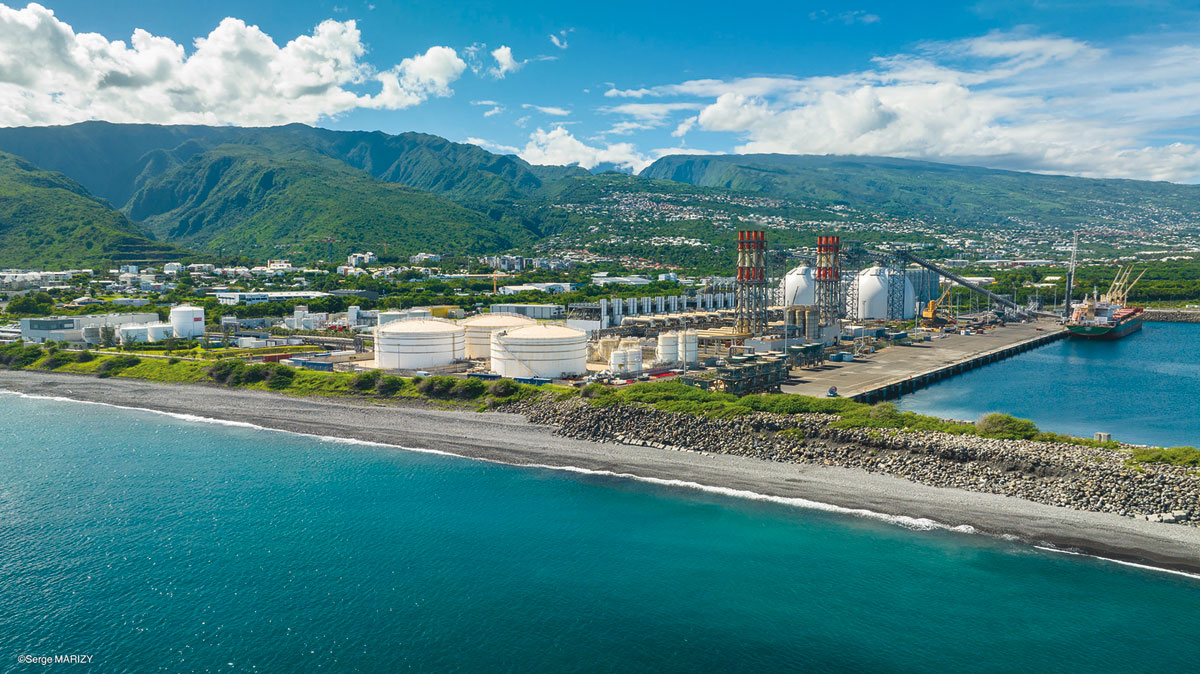
THE SHADOW OF THE REFORM OF THE SEA GRANT
La SPHB, i.e. local production of edible oils, which before its birth in 1985 were imported, provides an example of the concern aroused in Reunion's industry by the State's plan to reform dock dues, financial tool protecting local industry by taxing imported products more. Facing national or international competitors with volumes and production costs much lower than those of island manufacturers, due to economies of scale, dock dues allow local manufacturers to be competitive and have visibility without which it is difficult for them to invest. The loss of this advantage would necessarily have an impact on the investment policies of local manufacturers.. Hence the questioning of the local industrial environment, that Jean-Marie Ollivier does not hide sharing.
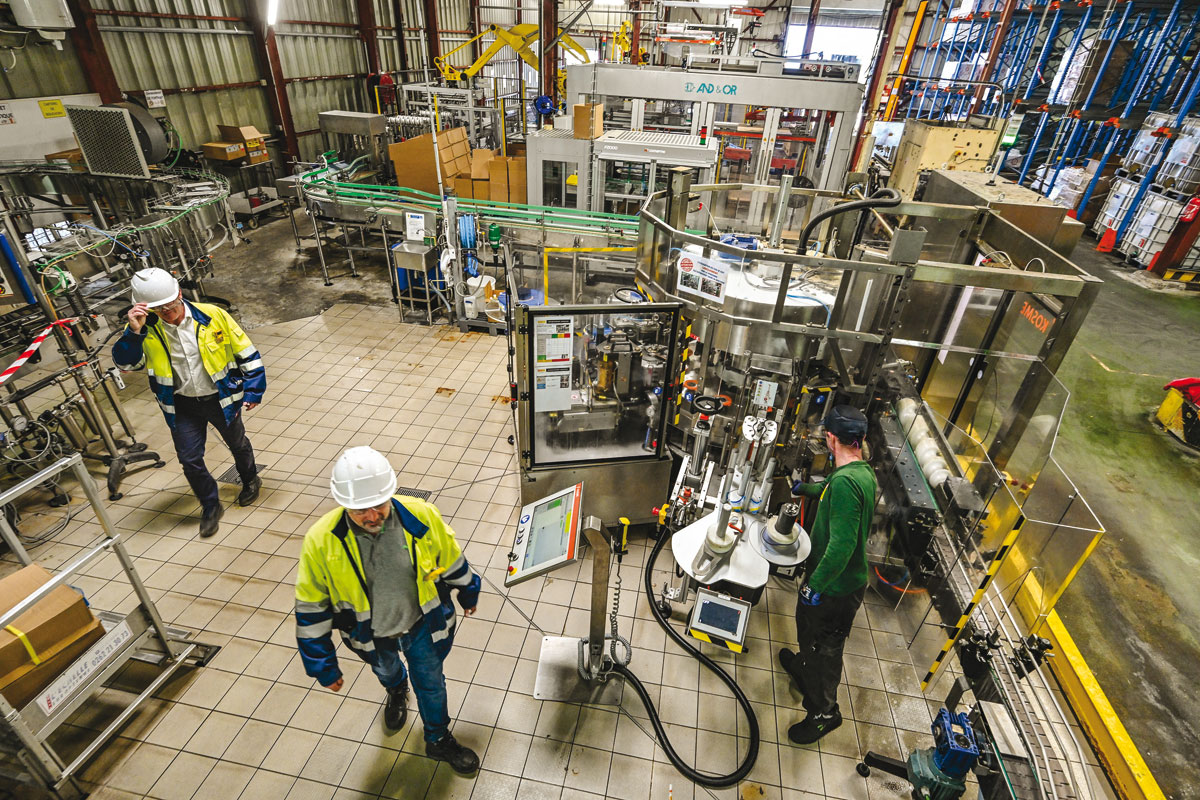
Jean-Marie Ollivier : agri-food in all its facets



